On April 24, 2025, Saha, the Ministry of Works, Housing and Water Resources, and Resource Centre Network convened senior policymakers, funders, implementers, and community representatives at the Coconut Grove Hotel in Accra for the National Level Learning Alliance Platform (NLLAP). The session—Driving Access and Equity in Water: Enabling Environment for Last-Mile Communities in Ghana—focused on forging sustainable, inclusive strategies to serve Ghana’s hardest-to-reach populations.
Context & Purpose
Safe drinking water is a recognized human right and essential to public health. Yet, according to the 2022 WHO/UNICEF Joint Monitoring Programme, over two million rural Ghanaians still lack reliable access. Urban and peri-urban improvements have outpaced rural gains due to low population density and high delivery costs. This NLLAP gathering aimed to identify innovative financing and policy measures to bridge the last-mile gap and ensure equitable water access for all communities.
Workshop Overview
Following opening remarks, the Water Directorate led an interactive workshop exploring practical funding and delivery mechanisms:
- Last-Mile Water Fund: Pooling surplus financial-sector liquidity into a dedicated fund for remote water infrastructure.
- Cross-Subsidization: Redirecting Community Water and Sanitation Agency revenues to support rural service delivery, backed by enabling legislation.
- Sector-Wide Water Tax: Levying manufacturers and corporations that are heavy water users to finance last-mile initiatives.
- Municipal Bonds: Structuring local bond issuances to underwrite rural water projects.
- Performance-Based Allocations: Incentivizing District Assemblies via assessment tools to allocate common and MP constituency funds to underserved areas.
- Service-Area Delineation: Defining clear operational zones to facilitate cost-recovery and subsidy models.
- Livelihood Integration: Embedding income-generation activities to improve community ability to pay for incremental water tariffs.
- Supplier Partnerships: Encouraging manufacturers of water system inputs to offer subsidized inputs, potentially via tax incentives.
Key Takeaways
- Subsidies Are Essential: Participants agreed that targeted financial support is critical to last-mile viability.
Legal and Institutional Frameworks: Effective financing mechanisms depend on supportive policies and structures currently under reform. - Continued Stakeholder Dialogue: While consensus exists on principles, detailed plans and systems must be developed to operationalize these ideas.
Next Steps & Expectations
As a next step, the World Bank’s WASH Acceleration Project staff will engage with Saha Global to align on National Water Policy implementation while Saha continues to build a coalition around professional last-mile water service delivery. Advancing policy, data, and finance integration will require sustained, multi-year collaboration across stakeholders and we are excited by the momentum.
Theo Boateng, Director of Operations, Expansion and Partnerships, showcased Saha’s proven last-mile delivery methodology. Drawing on extensive field experience, he underscored how meticulous planning, community engagement, and financial innovation can deliver reliable, professionally managed water services to remote communities.
As Ghana strives to close its rural water gap, the insights and partnerships forged at NLLAP will guide national reforms, bringing us closer to the goal of safe, dependable water access for every community—no matter how remote.
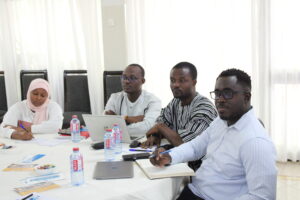

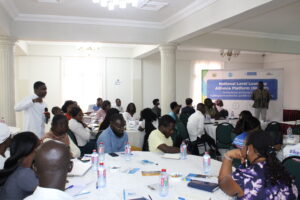
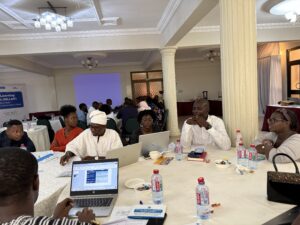
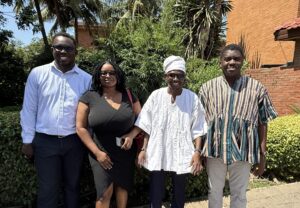
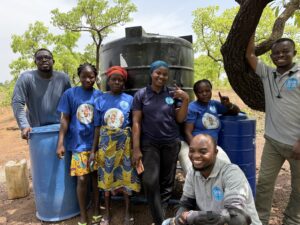
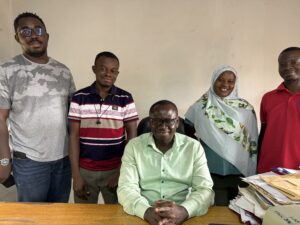
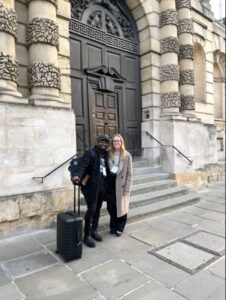 and Co-Founder, Kate Cincotta, and Development Associate, Eric Awini, who represented our organization in discussions centered around the professionalization of rural water, sanitation, and hygiene (WASH) services.
and Co-Founder, Kate Cincotta, and Development Associate, Eric Awini, who represented our organization in discussions centered around the professionalization of rural water, sanitation, and hygiene (WASH) services.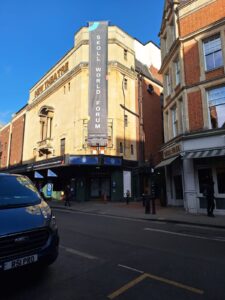 The event also celebrated the achievements of dedicated peers such as Gayatri Datar and Lonnie Hackett (both
The event also celebrated the achievements of dedicated peers such as Gayatri Datar and Lonnie Hackett (both 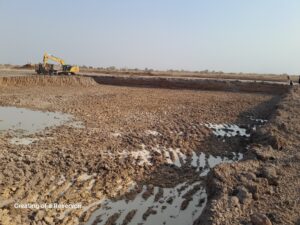 Northern Ghana faces prolonged dry seasons that deplete traditional water sources, forcing residents to travel long distances in search of water. To combat this, Saha Global, has began actively expanding and rehabilitating dugouts—vital water sources that serve entire communities. By increasing the capacity of these dugouts, we help ensure a more consistent water supply, even during the harshest drought periods. This intervention has significantly improved access to water for thousands of people who previously relied on seasonal and unreliable sources.
Northern Ghana faces prolonged dry seasons that deplete traditional water sources, forcing residents to travel long distances in search of water. To combat this, Saha Global, has began actively expanding and rehabilitating dugouts—vital water sources that serve entire communities. By increasing the capacity of these dugouts, we help ensure a more consistent water supply, even during the harshest drought periods. This intervention has significantly improved access to water for thousands of people who previously relied on seasonal and unreliable sources.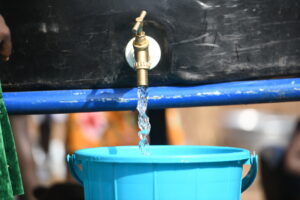
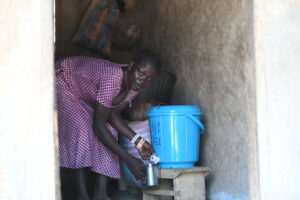 The impact of clean water cannot be overstated. Safe drinking water reduces the spread of waterborne diseases, enhances productivity, and improves the overall quality of life. With every dugout expansion and every woman trained, Saha Global is making strides toward achieving the global goal of universal access to clean water. Our work aligns with the theme of World Water Day 2025—Water for a Sustainable Future—as we continue to build resilient water systems that will serve generations to come.
The impact of clean water cannot be overstated. Safe drinking water reduces the spread of waterborne diseases, enhances productivity, and improves the overall quality of life. With every dugout expansion and every woman trained, Saha Global is making strides toward achieving the global goal of universal access to clean water. Our work aligns with the theme of World Water Day 2025—Water for a Sustainable Future—as we continue to build resilient water systems that will serve generations to come.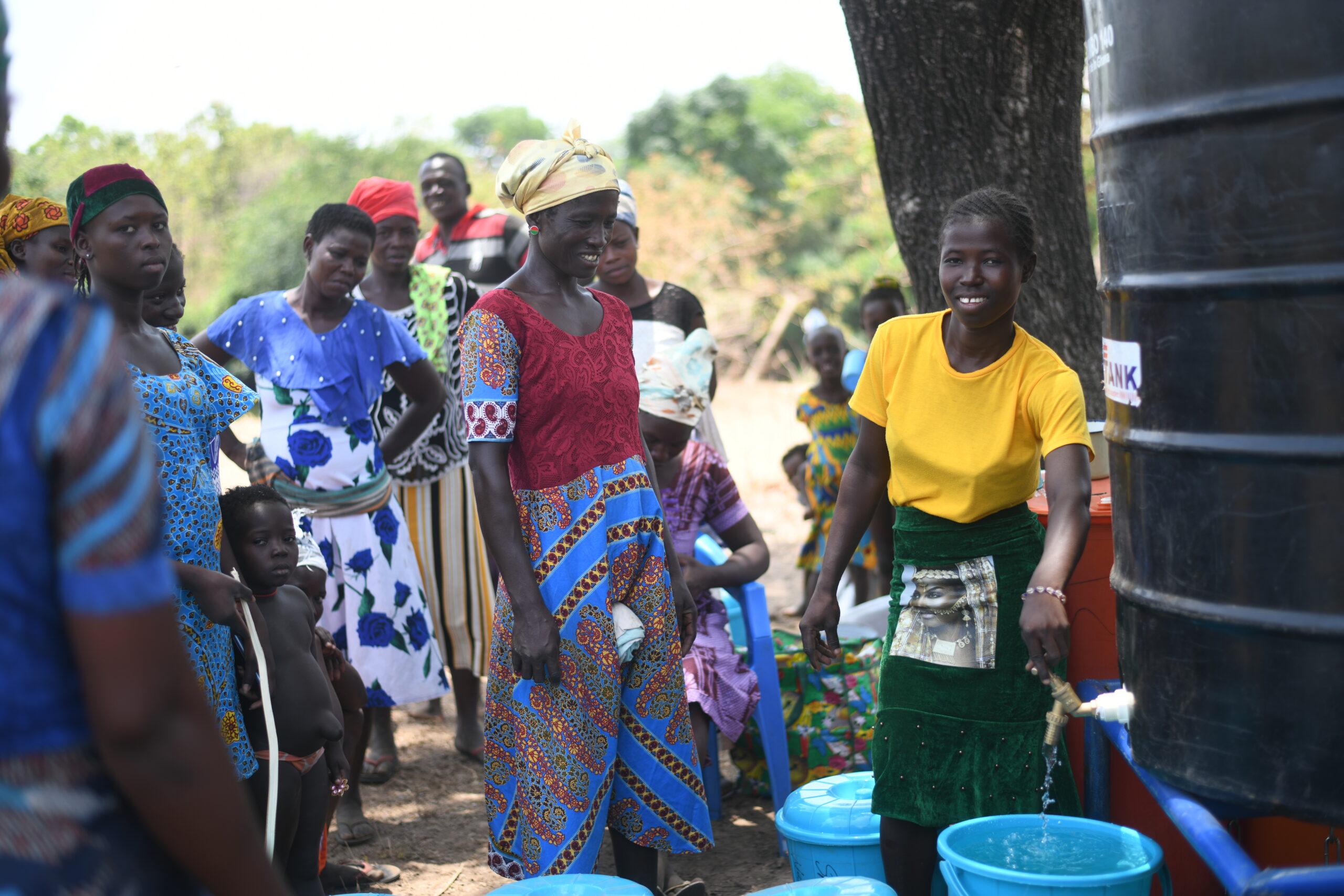
 While monitoring with Eric on Wednesday, Arasheitu, one of the entrepreneurs running the business in Kagbal, joined us for household visits. As a way to gauge our efforts to educate community members on the health benefits of drinking clean water, one of the questions we ask households when monitoring is, “Do you know why dugout water is unsafe to drink?” Anytime we asked this question and a community member would respond with, “No,” Arasheitu stepped in to explain why dugout water was unsafe to drink and the negative implications it has for health. Community members also told Eric and I that Arasheitu and her colleagues at the center, Adamu and Sanatu, were teaching people how to collect rainwater properly and reminding people to come and refill at the center with their safety storage containers on a regular basis. It was really amazing to see the level of Arasheitu’s initiative and her enthusiasm for helping her community. Eric and I also lucked out because one of the women in Kagbal had recently given birth to a baby boy and community members were celebrating the naming ceremony. Thanks to the CWS fellows and the women of Kagbal hard at work running the treatment center, this new addition to the
While monitoring with Eric on Wednesday, Arasheitu, one of the entrepreneurs running the business in Kagbal, joined us for household visits. As a way to gauge our efforts to educate community members on the health benefits of drinking clean water, one of the questions we ask households when monitoring is, “Do you know why dugout water is unsafe to drink?” Anytime we asked this question and a community member would respond with, “No,” Arasheitu stepped in to explain why dugout water was unsafe to drink and the negative implications it has for health. Community members also told Eric and I that Arasheitu and her colleagues at the center, Adamu and Sanatu, were teaching people how to collect rainwater properly and reminding people to come and refill at the center with their safety storage containers on a regular basis. It was really amazing to see the level of Arasheitu’s initiative and her enthusiasm for helping her community. Eric and I also lucked out because one of the women in Kagbal had recently given birth to a baby boy and community members were celebrating the naming ceremony. Thanks to the CWS fellows and the women of Kagbal hard at work running the treatment center, this new addition to the  community, Abrahim, will always have the option of clean drinking water. That is one of the most rewarding aspects of my job as Ghana Country Director.
community, Abrahim, will always have the option of clean drinking water. That is one of the most rewarding aspects of my job as Ghana Country Director.